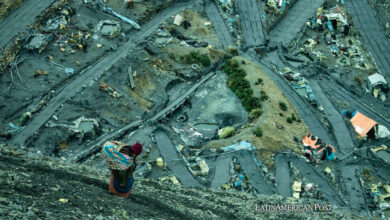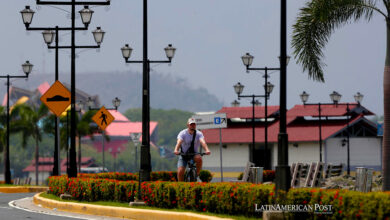Lula Vs Congress: Indigenous and the Environment are Losing in Brazil
Lula da Silva's environmental struggle, which prompted his rise to power, has had many setbacks. However, the Brazilian president has just presented a package of climate and environmental protection measures.

Photo: TW-MarinaSilva, Pixabay
LatinAmerican Post | María Fernanda Ramírez Ramos
Listen to this article
Leer en español: Lula vs. el Congreso: los pueblos indígenas y el medio ambiente van perdiendo en Brasil
The president of Brazil, Luis Inácio Lula da Silva, presented an ambitious plan to stop deforestation and recover the Amazon. This project, which is presented by the hand of his minister Marina Silva, is a new version of the plan he had during his first government, which was successful at that time. In this way, the Government intends to create new natural reserves that cover more than three million hectares and protect 230,000 kilometers of rivers. Likewise, it seeks to put brakes on the actors that cause deforestation. To this end, it proposes confiscating land from those who deforest their land. However, it not only intends to penalize environmental crimes, but also to promote an adequate use of natural resources with sustainable economies.
During the event to present the package of proposals, tribute was paid to British journalist Dom Phillips and indigenous activist Bruno Araújo, who were assassinated a year ago in the Amazon while investigating threats from criminal organizations operating in the region and affecting indigenous communities.
The battle with the opposition and the congress causes skepticism
Despite the good intentions and favorable goals outlined in Lula's environmental plan, the news is not received with as much hope as it should. Since Lula came to power, he has faced great opposition, much of the Bolsonaro type, which maintains great power within Congress. Just a week before the president of Brazil presented his new environmental proposals, on World Environment Day, Congress had dealt him two heavy blows. These come after months of a constant struggle between the progressive government and the right-wing opposition regarding the granting of resource exploitation licenses.
The opposition succeeded in disempowering the ministries of the Environment and of Indigenous Peoples, especially in matters of supervision of environmental policies and in the demarcation of indigenous lands. "With the changes, Brazilian Environment Minister Marina Silva lost power over the Rural Environmental Registry (CAR), a flawed, self-declarative land registry used to facilitate land grabbing. Silva also lost authority over the water management," says Mongabay. Likewise, Silva's ministry lost control over the national water agency and waste management and sanitation services. On the other hand, the congress approved the bill PL490, which has Brasilia full of protests against it.
Thus, Lula's environmental plans come at difficult times, since in Congress he has the power to stop them and even reverse decisions that are beneficial to protecting the environment. We must not forget that the agro-industries, oil and mining companies have enormous economic power and strong relations with politicians. More than 800 organizations have signed a manifesto to point out that what Congress is doing is shooting Brazil in the foot.
We recommend you read: Marina Silva, New Minister in Brazil, Resumes the Fight to End Deforestation
Bill PL490: an attack on indigenous peoples
One of the biggest setbacks that the Lula da Silva government has suffered took place on May 30, when the Chamber of Deputies approved a bill that limits the recognition of the ancestral lands of indigenous peoples. With 283 votes in favor, 155 against and one abstention, the controversial project PL490 was approved. This project generates conflict for various reasons. The strongest one is that it leaves communities that have made land claims unprotected and allows large agricultural, mining or oil organizations to continue exploiting the forest without much regulation.
Tribal rights organization Survival has called it the most serious attack on tribal rights in decades. “This is all in flagrant violation of the Brazilian Constitution and international law, but none of this matters in the slightest to the powerful agribusiness lobby in Congress,” Survival said. In fact, they have a citizen petition active to put pressure on the Senate, so that it is not approved in this instance, definitively.
"PL490 has been approved by the Chamber: a serious attack on indigenous peoples and the environment. We continue to fight for life. Even in the Senate, we will dialogue to avoid our lives being traded for profit and destruction. No! We will surrender!", said the Minister of Indigenous Peoples, Sonia Guajajara, on social networks. This politician, activist, and defender of rights is the first indigenous minister of the country.
One of the most controversial points of the project is the Temporary Framework. This is a way of limiting the recognition of indigenous territories. Those who cannot prove they were on their land when the 1988 constitution was promulgated will have no rights to the land. However, this ignores the processes of violence that these peoples have experienced and how interests in natural resources have expelled thousands of people from their lands. Consequently, so far in June, various indigenous communities have been in protests to demand that this Temporary Framework not be definitively approved.




